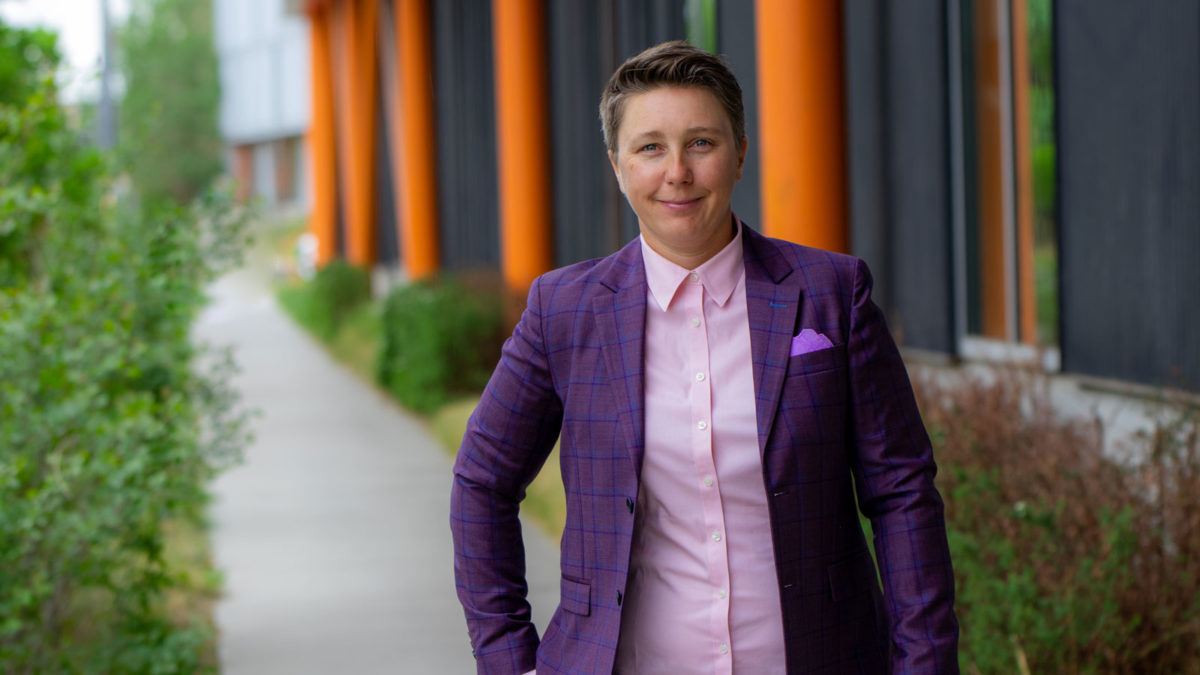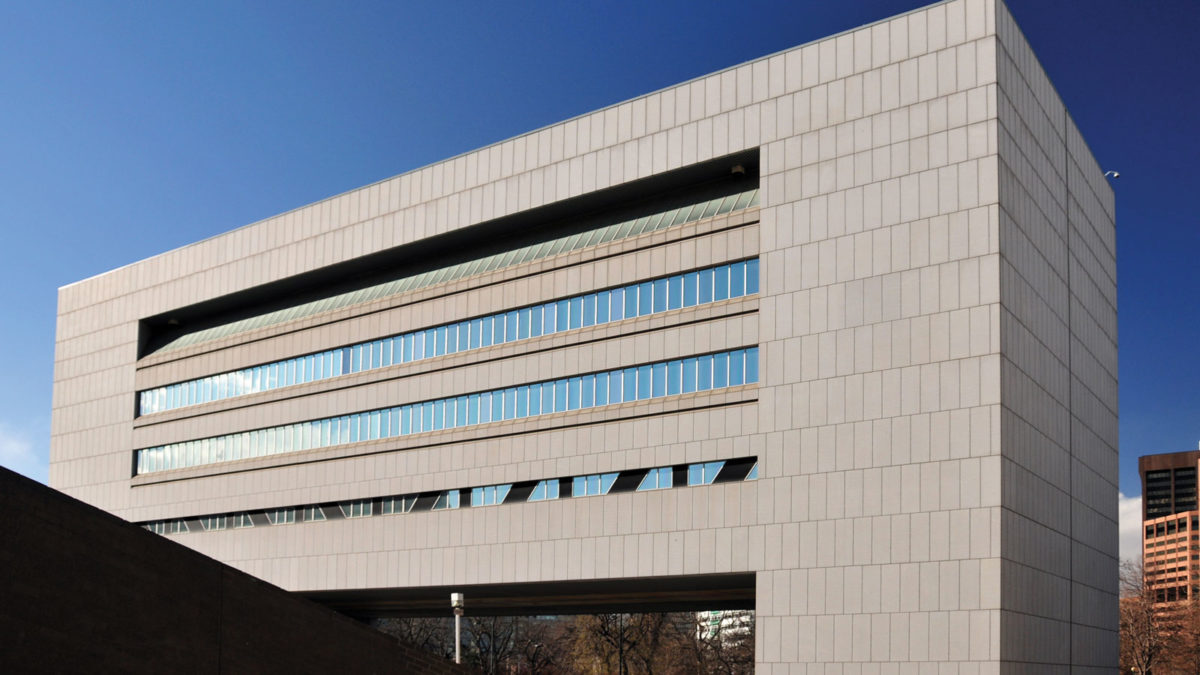
What Do We Owe to Each Other?
August/September 2022
Download This Article (.pdf)
I became a lawyer when I was barely 25 years old. They gave me a few pieces of paper to hang on my wall to suggest my legitimacy. They also gave me a bar number to sanction my work and supplant my name in the administration of the justice I was supposed to convey. Still a kid, I was now responsible for the lives and livelihoods of people who would look to me and my newfound expertise for help. Yet I had no idea what I was supposed to be doing. I felt lost, alone, scared, and unprepared for the moment.
I went seeking community in my uncertainty, searching for role models to help me find direction in my new professional role. Instead, I found the profession (and many of the people in it) to be lacking in the qualities of goodness that I had always deemed so critically important to professional and societal leadership: empathy, vision, connectedness, and purpose. My experience in the profession is not surprising. Lawyers tend to be above average in skepticism, competitiveness, urgency, autonomy, and achievement orientation.1 Skepticism, the tendency to be argumentative, cynical, and judgmental, can get in the way of inspiration and vision. Urgency, defined as the need to “get things done,” can lead to impatience, intolerance, and inadequate listening. Competitiveness and desires for autonomy and achievement can make lawyers overly self-absorbed, controlling, combative, and difficult to manage. Lawyers also rank lower than the general population in sociability, interpersonal sensitivity, and resilience (the ability to respond constructively to criticism), all of which can be critical to happiness.2
I’ve never been one to tolerate much in the way of philosophy, but finding myself and my peers lacking goodness and happiness in a profession that we had sacrificed so much to join just seemed too problematic to ignore. I went looking for answers.
Interpersonal Morality
So much of the law and the legal system is based on the theory of morality—what is right, what is wrong, and what is just. As legal academics, we frequently consider the theory of morality in advocating for our clients, in creating policy and legislation, and in making judicial decisions. Rarely, however, do we consider morality within our interpersonal relationships as professionals.
Interpersonal morality is generally understood as what we are entitled to demand of others, the manner in which we may legitimately interact with them, and what we owe them.3 This theory of interpersonal morality is also known as a theory of contractualism, developed by the philosopher T. M. Scanlon in his book What We Owe to Each Other.4 In his writing, Scanlon asserts that interpersonal morality is a key component to living a good and happy life. Interpersonal morality involves being able to justify your conduct to others, doing right by other people, and treating them in ways they cannot “reasonably reject.”5 Interpersonal morality means that we owe it to other people to treat them in accordance with their value as living human beings.
In an adversarial profession, it is easy to lose sight of the value of our peers as human beings. We can be quick to dehumanize one another in an effort to advocate on behalf of our clients and to win on behalf of our egos. I believe the lack of interpersonal morality in the legal profession, both tendered by us and received from others, has a substantial detrimental impact on our happiness as professionals.
Happiness
In psychology, there are two popular conceptions of happiness: hedonic and eudaimonic. Hedonic happiness is achieved through experiences of pleasure and enjoyment, while eudaimonic happiness is achieved through experiences of meaning and purpose.6
A key question of what we owe to each other is, “What are your gifts, and how do you share them with others?” The first part of the question could relate to hedonic happiness if we only focus on improving ourselves. But the second part of the question lends itself to self-transcendence through giving to others. It is this purposeful happiness that lawyers should cultivate in themselves because it will propel us in our duty to use our knowledge of the law to better society and improve the legal system.
Practicing Law “On Purpose”
So, how do we solve today’s problems within the legal system, within the profession, and within society a whole? “The real answer is in our relationships—what we can learn from each other, what we can do for each other, and what we owe to each other.”7
What we owe each other is to be purposeful in the ways we practice law and the ways we engage in community with one another. Throughout my term, I hope to keep the question of “What do we owe to each other?” at the forefront of every policy, governance, and equity conversation we have as a bar association.
This theme has taken on more urgency in the past several years as the world has faced challenges that demand stronger leadership from the legal profession. Our purpose-driven work can cultivate organizational cultures and individual characters of curiosity, empathy, agency, responsibility, and adaptability that will allow lawyers as leaders to transcend themselves in the service of others and provide a groundedness and resolve to navigate the challenges of today’s world. The recurring mantra of the year will come from Viktor Frankl: “Those who have a ‘why’ to live can bear with almost any how.”8
The legal profession is facing an uncertain “how” in a world defined by the pandemic, civil unrest, war, natural disasters, and other causes of suffering. The impact of these situations on the happiness and goodness of lawyers encountering their own traumas in relation to the world cannot be underestimated. It is easy to understand how feelings of meaninglessness, cynicism, and disconnectedness can bleed into our day-to-day interactions. These outer events, as well as the typical hardships of a demanding legal profession, have led to a mental health crisis for lawyers that adds urgency to fostering the fortitude that comes with purpose. The work of purpose finding and then purposeful practice is not quick and easy. It begins with self-understanding and relies on a sense of personal agency as we answer the weighty questions, “What matters to me? What do I value? What do I owe to my community?”
In a year of strategic planning for the CBA, these questions will guide us as we envision the future of our bar association. I hope you will join me in considering these questions as we seek to drive engagement, equity, relevancy, and belonging as a community of lawyers solving the puzzles of the profession every day. 
Notes
1. Rhode, “What Lawyers Lack: Leadership,” 9 U. St. Thomas L.J. 471 (2011).
2. Id.
3. Scanlon, What We Owe To Each Other (Belknap Press 1998).
4. Id.
5. Id.
6. Joseph, “What Is Eudaimonic Happiness?” Psychology Today 2 (Jan. 2019), https://www.psychologytoday.com/us/blog/what-doesnt-kill-us/201901/what-is-eudaimonic-happiness.
7. Scanlon, supra note 3.
8. Frankl, Man’s Search for Meaning: An Introduction to Logotherapy (Hodder and Stoughton 1962).
In an adversarial profession, it is easy to lose sight of the value of our peers as human beings. We can be quick to dehumanize one another in an effort to advocate on behalf of our clients and to win on behalf of our egos.


